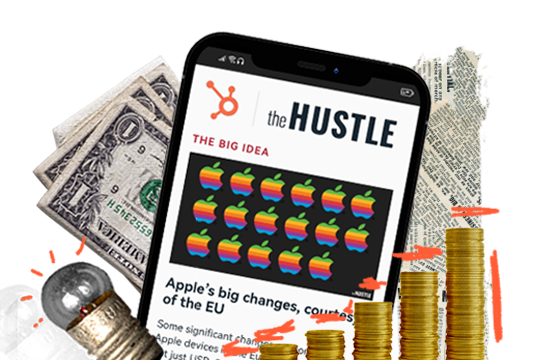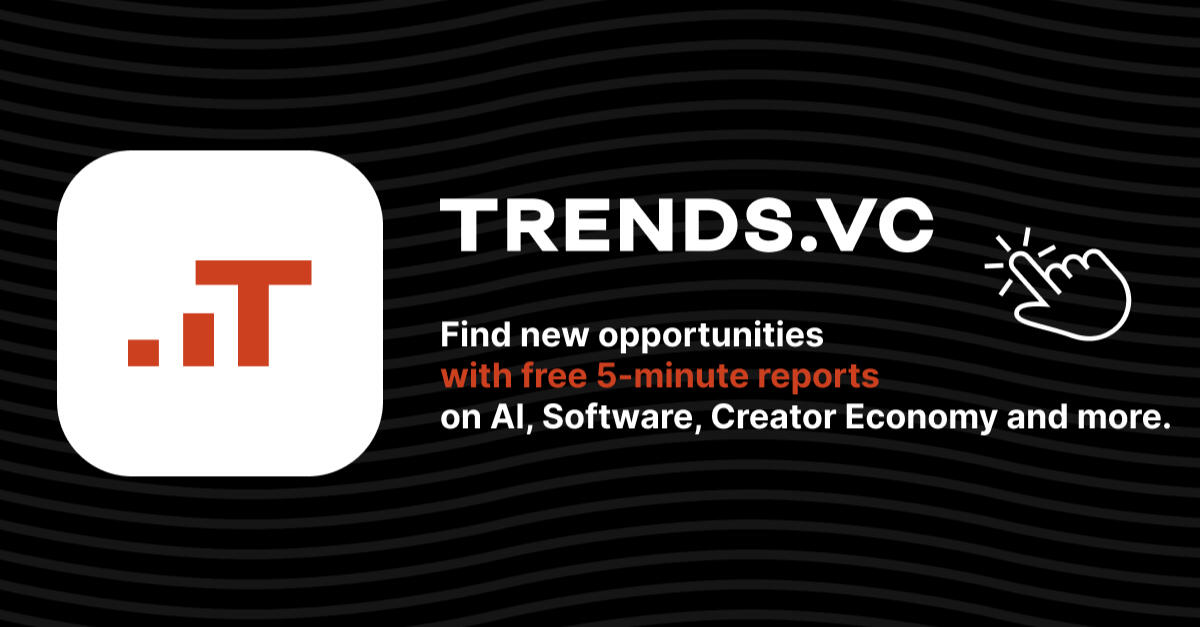- The Modern Warfare
- Posts
- Musk’s DOGE Unleashed: Is China’s Hidden Hand Stealing America’s Democracy?
Musk’s DOGE Unleashed: Is China’s Hidden Hand Stealing America’s Democracy?
The Tesla Tycoon’s Power Grab and the Geopolitical Plot Threatening U.S. Sovereignty
Paying the bills
Start learning AI in 2025
Everyone talks about AI, but no one has the time to learn it. So, we found the easiest way to learn AI in as little time as possible: The Rundown AI.
It's a free AI newsletter that keeps you up-to-date on the latest AI news, and teaches you how to apply it in just 5 minutes a day.
Plus, complete the quiz after signing up and they’ll recommend the best AI tools, guides, and courses – tailored to your needs.
Links We Like
1. Trump is more popular with young people than old people. Most young people don’t own stocks or homes (aka they are asset-light).
2. Trump is also more popular amongst working and middle class folks. Most of these folks are also asset-light.
It stands to reason that a fall… x.com/i/web/status/1…
— Chamath Palihapitiya (@chamath)
9:42 PM • Mar 3, 2025
The Rise of DOGE and the Musk-China Conundrum: A Critical Moment for U.S. Democracy
In recent months, the Trump administration’s Department of Government Efficiency (DOGE) has shaken the foundations of U.S. governance. Originally framed as a movement to eliminate bureaucratic inefficiencies, DOGE has morphed into a radical restructuring of federal agencies, with sweeping powers that operate largely outside constitutional oversight. At the heart of this transformation is Elon Musk, whose influence extends far beyond administrative restructuring, raising critical questions about his deep financial ties to China and the potential implications for U.S. foreign policy.
DOGE and the Echoes of China’s Cultural Revolution
The rapid ascent of DOGE draws striking parallels to one of history’s most extreme power shifts—the Central Cultural Revolution Group (CCRG) during China’s Cultural Revolution (1966-1976). Both DOGE and the CCRG were established as extralegal entities by populist leaders who sought to bypass entrenched bureaucracies. In China, Mao Zedong’s CCRG purged perceived political enemies and rewrote the governance framework to consolidate power. Today, DOGE is systematically dismantling key federal institutions under Musk’s direction, wielding unchecked authority in ways that sideline traditional oversight mechanisms.
The CCRG weaponized mass movements, urging citizens to reject existing hierarchies and embrace radical change. Similarly, DOGE has positioned itself as a crusader against government inefficiency, resonating with frustrated American voters who see bureaucracy as an impediment to progress. However, history has shown that such upheavals, driven by centralized figures operating outside traditional legal structures, can lead to instability and long-term harm.
Unlike China’s CCRG, DOGE operates within a constitutional democracy, where legal recourse remains possible. Investigations into its overreach have already begun, but the longer DOGE remains unchecked, the greater the risk of institutional decay.
Musk’s Deep Ties to China: A Foreign Policy Liability?
As Musk reshapes the federal government through DOGE, his business interests in China present another layer of complexity. With Tesla deeply embedded in the Chinese market, Musk’s financial dependence on Beijing raises concerns about potential conflicts of interest and foreign influence on U.S. policy.
Tesla’s Shanghai factory is the company’s most productive facility, accounting for more than half of its global deliveries and a majority of its profits. The factory’s success is directly tied to Chinese government support, including favorable loans, tax incentives, and relaxed ownership regulations. This reliance gives Beijing significant leverage over Musk, positioning him as a possible conduit for Chinese interests within the Trump administration.
Musk has expressed admiration for China’s labor practices, infrastructure, and space program while downplaying concerns about human rights violations and geopolitical tensions. His remarks on Taiwan, likening it to Hawaii and suggesting it could become a special administrative zone under Beijing’s rule, align closely with China’s official stance—raising concerns about how his views might shape U.S. foreign policy.
The Diplomatic Back Channel?
Musk’s influence over Trump is undeniable. As the head of DOGE, he has direct access to the president, making it plausible that he could serve as an unofficial liaison between Washington and Beijing. His longstanding relationship with China’s Premier Li Qiang, who facilitated Tesla’s expansion in Shanghai, further underscores this possibility.
If Trump were to soften his stance on China in response to Musk’s influence, it could create fractures within the administration. Many of Trump’s top advisers remain staunchly anti-China, advocating for economic decoupling and stricter policies against Beijing’s expansionism. This ideological divide within the administration raises the question: will Musk’s pro-China stance gain traction, or will it be countered by hardline policymakers?
Refind - Brain food is delivered daily. Every day we analyze thousands of articles and send you only the best, tailored to your interests. Loved by 510,562 curious minds. Subscribe. |
The Potential for Chinese Leverage
China has a history of coercing multinational corporations into compliance with its policies. Apple, for instance, removed VPN apps from its store in China due to government pressure. If Beijing perceives Musk’s influence within the Trump administration as a strategic asset, it could exert similar pressure on Tesla, leveraging its dependence on the Chinese market to sway U.S. policies.
This scenario is particularly concerning given Musk’s role in DOGE, where he has access to sensitive government data. If foreign influence over Musk were to extend into this domain, it could present national security risks. Congress and U.S. intelligence agencies must scrutinize these ties to ensure that economic dependencies do not translate into policy concessions.
The Future of DOGE and U.S. Governance
DOGE’s unchecked authority, coupled with Musk’s entanglements in China, paints a troubling picture of power consolidation and potential foreign influence. Historical lessons from China’s Cultural Revolution suggest that when political leaders bypass established legal frameworks in the name of efficiency, the consequences can be severe and long-lasting.
The U.S. still possesses institutional safeguards that China lacked during the Cultural Revolution. However, for these mechanisms to be effective, there must be bipartisan efforts to investigate and limit DOGE’s reach. Additionally, Musk’s role in shaping foreign policy must be carefully monitored to ensure that national interests remain protected from external influence.
Conclusion: The Precarious Balance of Power
Musk’s dual role as a government powerbroker and a businessman with deep financial ties to China places the U.S. in a precarious position. While DOGE’s radical restructuring of federal agencies is already raising alarms, the broader concern is how Musk’s influence could shape America’s geopolitical stance.
If history has taught us anything, it is that unchecked power—whether in the form of China’s CCRG or today’s DOGE—poses an existential threat to stable governance. The coming months will determine whether America’s legal and political institutions can assert control over DOGE’s reach and prevent the undue influence of foreign interests in Washington.
The challenge ahead is clear: preserve democratic integrity while safeguarding national security. The question remains—will the system hold, or is the U.S. witnessing the early stages of a governance crisis that could reshape its future?
If you enjoy this newsletter, please consider sharing it with your friends and business contacts by clicking the button below. ⬇️
Thank you for reading this far. Please share your thoughts and join the conversation in the comment section below.
About The Modern Warfare
We strive to provide insightful and unbiased reporting on the most pressing issues of our time. Subscribe to our newsletter to stay informed and ahead of the curve.
Stay informed. Stay vigilant. Stay ahead.
The Modern Warfare Team
Disclaimer: This newsletter is for informational purposes only and should not be construed as financial or political advice.






